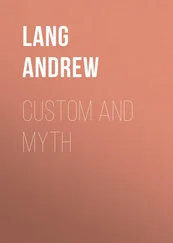Andrew Lang - A Monk of Fife
Здесь есть возможность читать онлайн «Andrew Lang - A Monk of Fife» — ознакомительный отрывок электронной книги совершенно бесплатно, а после прочтения отрывка купить полную версию. В некоторых случаях можно слушать аудио, скачать через торрент в формате fb2 и присутствует краткое содержание. Жанр: foreign_antique, foreign_prose, на английском языке. Описание произведения, (предисловие) а так же отзывы посетителей доступны на портале библиотеки ЛибКат.
- Название:A Monk of Fife
- Автор:
- Жанр:
- Год:неизвестен
- ISBN:нет данных
- Рейтинг книги:3 / 5. Голосов: 1
-
Избранное:Добавить в избранное
- Отзывы:
-
Ваша оценка:
- 60
- 1
- 2
- 3
- 4
- 5
A Monk of Fife: краткое содержание, описание и аннотация
Предлагаем к чтению аннотацию, описание, краткое содержание или предисловие (зависит от того, что написал сам автор книги «A Monk of Fife»). Если вы не нашли необходимую информацию о книге — напишите в комментариях, мы постараемся отыскать её.
A Monk of Fife — читать онлайн ознакомительный отрывок
Ниже представлен текст книги, разбитый по страницам. Система сохранения места последней прочитанной страницы, позволяет с удобством читать онлайн бесплатно книгу «A Monk of Fife», без необходимости каждый раз заново искать на чём Вы остановились. Поставьте закладку, и сможете в любой момент перейти на страницу, на которой закончили чтение.
Интервал:
Закладка:
“That good oar-stroke will learn you to steal boats!”
I knew the voice; it was that of a merchant sailor-man with whom, on the day before, I had quarrelled in the market-place. Now I was lying at the bottom of a boat which four seamen, who had rowed up to me and had broken my head as I meditated, were pulling towards a merchant-vessel, or carrick, in the Eden-mouth. Her sails were being set; the boat wherein I lay was towing that into which I had leaped after striking down Melville. For two of the ship’s men, being on shore, had hailed their fellows in the carrick, and they had taken vengeance upon me.
“You scholar lads must be taught better than your masters learn you,” said my enemy.
And therewith they carried me on board the vessel, the “St. Margaret,” of Berwick, laden with a cargo of dried salmon from Eden-mouth. They meant me no kindness, for there was an old feud between the scholars and the sailors; but it seemed to me, in my foolishness, that now I was in luck’s way. I need not go back, with blood on my hands, to Pitcullo and my father. I had money in my pouch, my mother’s gold chain about my neck, a ship’s deck under my foot, and the seas before me. It was not hard for me to bargain with the shipmaster for a passage to Berwick, whence I might put myself aboard a vessel that traded to Bordeaux for wine from that country. The sailors I made my friends at no great cost, for indeed they were the conquerors, and could afford to show clemency, and hold me to slight ransom as a prisoner of war.
So we lifted anchor, and sailed out of Eden-mouth, none of those on shore knowing how I was aboard the carrick that slipped by the bishop’s castle, and so under the great towers of the minster and St. Rule’s, forth to the Northern Sea. Despite my broken head – which put it comfortably into my mind that maybe Dickon’s was no worse – I could have laughed to think how clean I had vanished away from St. Andrews, as if the fairies had taken me. Now having time to reason of it quietly, I picked up hope for Dickon’s life, remembering his head to be of the thickest. Then came into my mind the many romances of chivalry which I had read, wherein the young squire has to flee his country for a chance blow, as did Messire Patroclus, in the Romance of Troy, who slew a man in anger over the game of the chess, and many another knight, in the tales of Charlemagne and his paladins. For ever it is thus the story opens, and my story, methought, was beginning to-day like the rest.
Now, not to prove more wearisome than need be, and so vex those who read this chronicle with much talk about myself, and such accidents of travel as beset all voyagers, and chiefly in time of war, I found a trading ship at Berwick, and reached Bordeaux safe, after much sickness on the sea. And in Bordeaux, with a very sore heart, I changed the links of my mother’s chain that were left to me – all but four, that still I keep – for money of that country; and so, with a lighter pack than spirit, I set forth towards Orleans and to my brother Robin.
On this journey I had good cause to bless Father Peter of the Abbey for his teaching me the French tongue, that was of more service to me than all my Latin. Yet my Latin, too, the little I knew, stood me in good stead at the monasteries, where often I found bed and board, and no small kindness; I little deeming that, in time to come, I also should be in religion, an old man and weary, glad to speak with travellers concerning the news of the world, from which I am now these ten years retired. Yet I love even better to call back memories of these days, when I took my part in the fray. If this be a sin, may God and the Saints forgive me, for if I have fought, it was in a rightful cause, which Heaven at last has prospered, and in no private quarrel. And methinks I have one among the Saints to pray for me, as a friend for a friend not unfaithful. But on this matter I submit me to the judgment of the Church, as in all questions of the faith.
CHAPTER II – HOW NORMAN LESLIE MET NOIROUFLE THE CORDELIER, CALLED BROTHER THOMAS IN RELIGION: AND OF MIRACLES WROUGHT BY BROTHER THOMAS
The ways were rude and long from Bordeaux town to Orleans, whither I had set my face, not knowing, when I left my own country, that the city was beleaguered by the English. For who could guess that lords and knights of the Christian faith, holding captive the gentle Duke of Orleans, would besiege his own city? – a thing unheard of among the very Saracens, and a deed that God punished. Yet the news of this great villainy, namely, the leaguer of Orleans, then newly begun, reached my ears on my landing at Bordeaux, and made me greatly fear that I might never meet my brother Robin alive. And this my doubt proved but too true, for he soon after this time fell, with many other Scottish gentlemen and archers, deserted shamefully by the French and by Charles de Bourbon, Comte de Clermont, at the Battle of the Herrings. But of this I knew nothing – as, indeed, the battle was not yet fought – and only pushed on for France, thinking to take service with the Dauphin against the English. My journey was through a country ruinous enough, for, though the English were on the further bank of the Loire, the partisans of the Dauphin had made a ruin round themselves and their holds, and, not being paid, they lived upon the country.
The further north I held, by ways broken and ruined with rains and suns, the more bare and rugged grew the whole land. Once, stopping hard by a hamlet, I had sat down to munch such food as I carried, and was sharing my meal with a little brown herd-boy, who told me that he was dinnerless. A few sheep and lean kine plucked at such scant grasses as grew among rocks, and herbs useless but sweet-scented, when suddenly a horn was blown from the tower of the little church. The first note of that blast had not died away, when every cow and sheep was scampering towards the hamlet and a kind of “barmkyn” 4 4 Rude wall surrounding a keep.
they had builded there for protection, and the boy after them, running with his bare legs for dear life. For me, I was too amazed to run in time, so lay skulking in the thick sweet-smelling herbs, whence I saw certain men-at-arms gallop to the crest of a cliff hard by, and ride on with curses, for they were not of strength to take the barmkyn.
Such was the face of France in many counties. The fields lay weedy and untilled; the starving peasant-folk took to the highway, every man preying on his neighbour. Woods had grown up, and broken in upon the roads. Howbeit, though robbers harboured therein, none of them held to ransom a wandering poor Scots scholar.
Slowly I trudged, being often delayed, and I was now nearing Poictiers, and thought myself well on my road to Chinon, where, as I heard, the Dauphin lay, when I came to a place where the road should have crossed a stream – not wide, but strong, smooth, and very deep. The stream ran through a glen; and above the road I had long noted the towers of a castle. But as I drew closer, I saw first that the walls were black with fire and roofless, and that carrion birds were hovering over them, some enemy having fallen upon the place: and next, behold, the bridge was broken, and there was neither ford nor ferry! All the ruin was fresh, the castle still smouldering, the kites flocking and yelling above the trees, the planks of the bridge showing that the destruction was but of yesterday.
This matter of the broken bridge cost me little thought, for I could swim like an otter. But there was another traveller down by the stream who seemed more nearly concerned. When I came close to him, I found him standing up to his waist in the water, taking soundings with a long and heavy staff. His cordelier’s frock was tucked up into his belt, his long brown legs, with black hairs thick on them, were naked. He was a huge, dark man, and when he turned and stared at me, I thought that, among all men of the Church and in religion whom I had ever beheld, he was the foulest and most fierce to look upon. He had an ugly, murderous visage, fell eyes and keen, and a right long nose, hooked like a falcon’s. The eyes in his head shone like swords, and of all eyes of man I ever saw, his were the most piercing and most terrible. On his back he carried, as I noticed at the first, what I never saw on a cordelier’s back before, or on any but his since – an arbalest, and he had bolts enough in his bag, the feathers showing above.
Читать дальшеИнтервал:
Закладка:
Похожие книги на «A Monk of Fife»
Представляем Вашему вниманию похожие книги на «A Monk of Fife» списком для выбора. Мы отобрали схожую по названию и смыслу литературу в надежде предоставить читателям больше вариантов отыскать новые, интересные, ещё непрочитанные произведения.
Обсуждение, отзывы о книге «A Monk of Fife» и просто собственные мнения читателей. Оставьте ваши комментарии, напишите, что Вы думаете о произведении, его смысле или главных героях. Укажите что конкретно понравилось, а что нет, и почему Вы так считаете.












